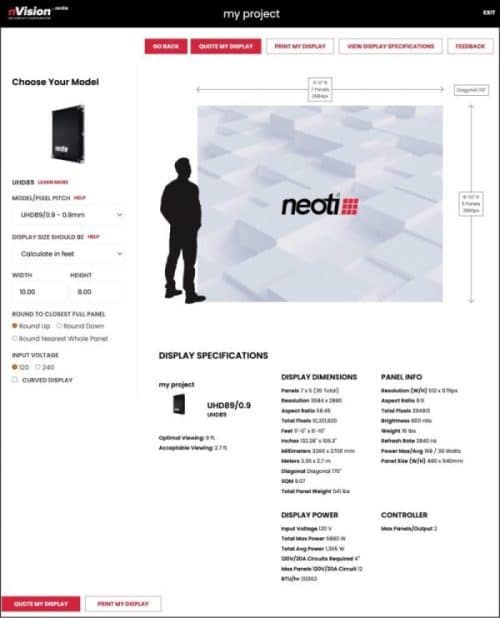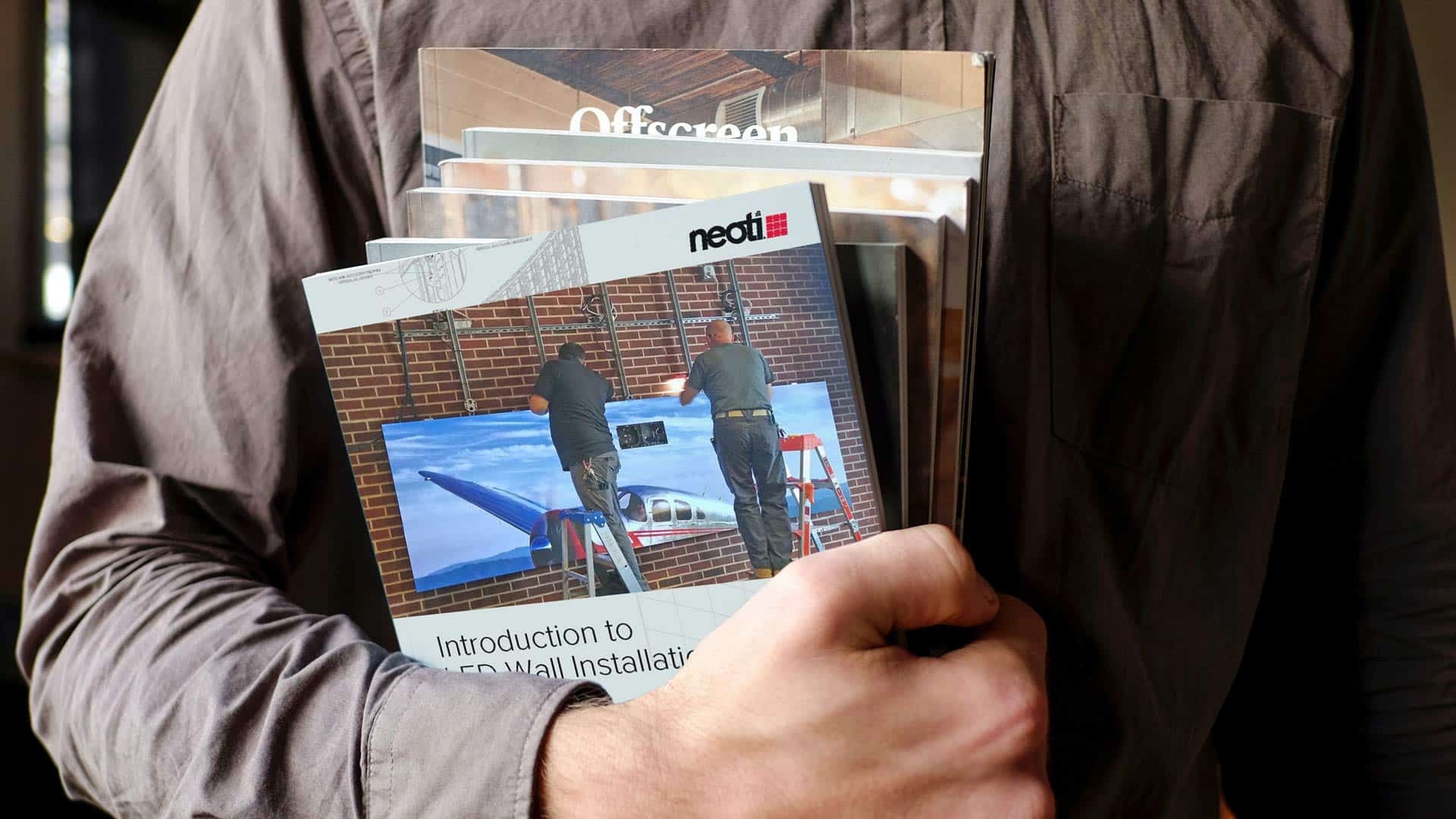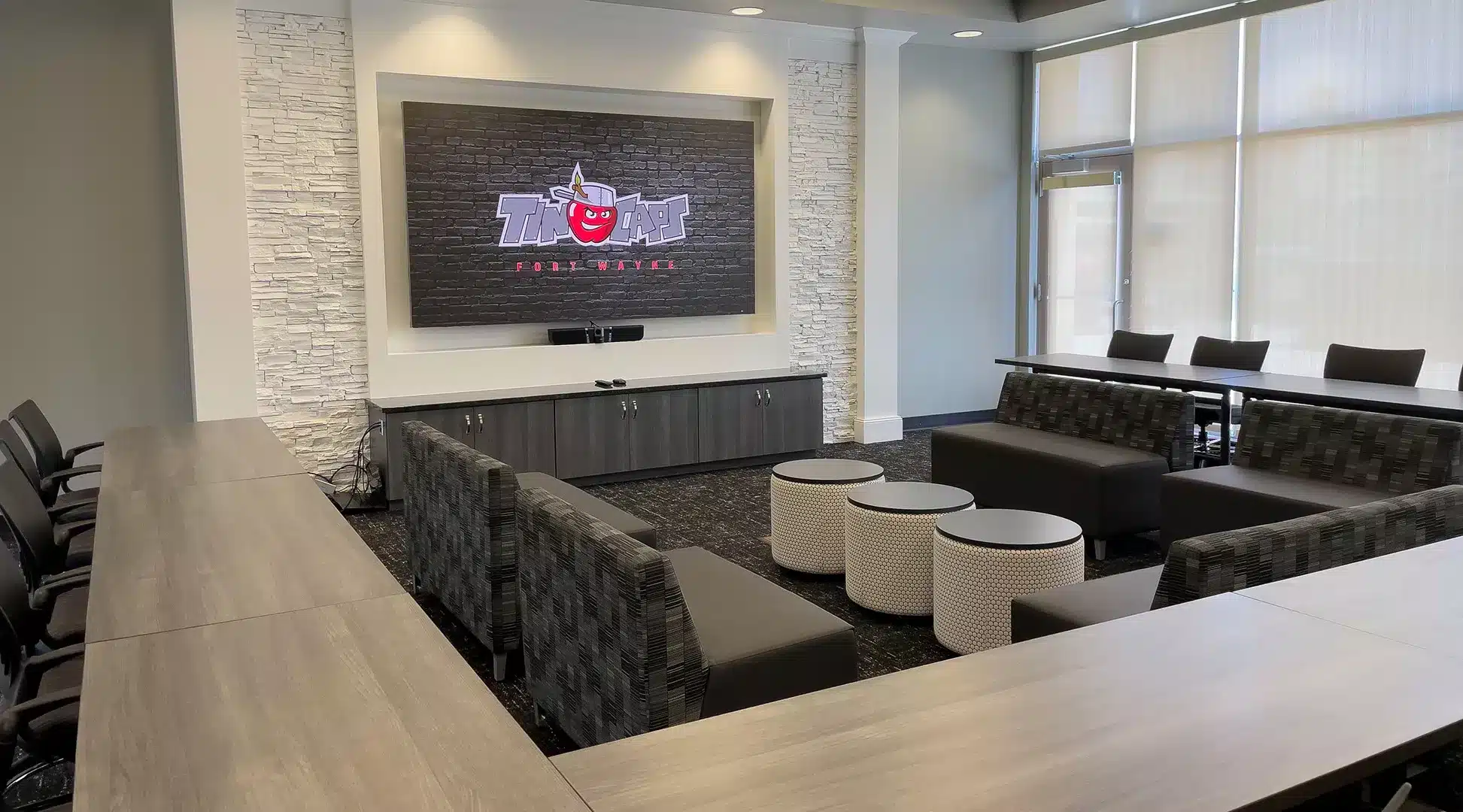Signage is an important investment. You need something that says “Hey we’re here!” while remaining attractive and approachable. Traditional static signage is great, but limited. A set-it-and-forget-it signage solution isn’t effective in our ever evolving fast-paced on demand culture. Businesses need to move quickly. The last thing a company needs is to have a great new product or service, but be held up while waiting for new signage to come in that features said new product or service. If a picture is worth a thousand words, a video or motion graphic is worth a million. According to a report published by Market Data Forecast, digital signage is projected to be upwards of a 31 billion dollar industry by 2023. With the world moving to more dynamic ads, now is the time to invest in LED digital signage.
Deciding to invest in digital signage is one thing. Choosing which digital signage display to invest in is another process altogether. Should you go with the more traditional LCD screen or tiled LCD wall? Is LED worth the investment? What size and display options are available?
Advances in LED Video Display technology are simultaneously driving down prices while maintaining or even increasing display quality. Although LCD is still generally cheaper than LED, LED is a better investment in terms of display options and image quality.
More Display Options
LED is modular by nature. Squares, rectangles, abstract shapes, and even 3-dimensional shapes are possible with LED. A variety of IP rating options allow for outdoor LED digital signage. If none of the current module sizes are sufficient to meet a customer’s needs, custom LED options are available. LED is truly versatile and can be integrated into an endless number of environments.
LCD by contrast is very limited. Generally, with LCD you are confined to a certain aspect ratio and limited screen sizes. If a bigger LCD screen is desired, the LCD screens need to be tiled. Because the LCD screens are limited by size and dimension options, tiled LCD is also limited by size and dimension.
Tiling LCD screens creates seams or bezels that can distract from the overall message. Some LCD display companies have tried to reduce this effect by making the bezels smaller, but the eye can be diverted by even a small crack or gap in content. Additionally, these bezels can interfere with content and message. Imagine a seam cutting through the face of a model or text with awkward spacing because the bezel hadn’t been accounted for during content creation. Not only are seams unattractive, but they have been known to complicate content creation. The modular nature of LED allows LED video displays to be seamless regardless of display size.
Better Display Quality
LCD is a tried and true technology that works great – inside a home with limited ambient lighting. Lighting conditions can be highly variable in the real world. A video display should look great regardless of time of day, time of year, or lighting conditions. Such reliability isn’t possible with a LCD screen.
Direct view LED is the perfect technology to display reliable stunning glare-free output. Don’t make customers squint to see the screen. By the time the customer has discerned what is behind the glare on an LCD screen, something or someone else may have caught their attention. Worse yet, a customer may not even try to decipher what is behind the screen’s glare.
Advances in LED display have allowed for tighter pixel pitch. Tighter pixel pitch translates into higher resolution. Modern LED Video Display can display even high-defintion images and video flawlessly.
Click here to learn even more Direct View LED Technology.




